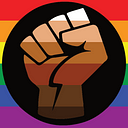The silent violence of the term ‘asexual’
Asexual people are people who do not experience sexual attraction, and see themselves as being defined as not experiencing the desire to have sex. I think we can all see from this how incredibly problematic it is that the term we use to designate them contains the word ‘sex’ at all. We still see them in terms of sexuality, when their very existence is a rejection of the notion of sexuality. It appears to be the case to me that this is something we should address.
I am not an asexual person, so my words should be taken with a grain of salt (as a demisexual, my struggles bear some similarities to theirs; but of course, having an identity situated on the graysexual scale is not equivalent to being firmly asexual). I do not pretend to speak for this community that I am not a part of, but I am watching many of my asexual friends struggle in silence when they use these terms to define themselves because it does not truly capture the essence of what it is like to not experience sexual attraction, and I feel a need to use my voice and privilege as one who does experience sexual attraction to some extent to help uplift them.
They feel trapped when they use terms like these because the sexual-attraction-experiencing majority struggles so much to understand what they go through and experience; and in such a world, asexual people feel as if they can only make themselves heard and understood by using the oppressive language of the sexual-attraction-experiencing-majority.
Asexual people deserve better than this. They deserve to define themselves in their own terms, instead of adapting their identity to make it more comprehensible to others. When asexual people have refer to themselves as ‘people who do not experience sexual attraction’ constantly, they might begin to internalize this view of themselves and start to see their own identity through this lens. This process, of seeing themselves through the language of the oppressor, only serves to further distance themselves from their own bodies and identities. It is not the job of asexual people to refer to themselves in language more comprehensible to their oppressors— it is the job of their oppressors to recognize that they are such, and it is their responsibility to educate themselves on the realities of the lived experiences of asexual people. It is their job to learn to understand these identities in a way so that they do not have to use sexually charged language to denote them.
Now is the time for asexual people to choose the new, preferred terminology that we use to refer to their community which excludes a sequence of the letters s, e and x appearing in succession. Or perhaps we need to see an even more radical transformation to our language.
Maybe we don’t need a word to replace ‘asexual,’ seeing as that word’s history will always be rooted in the oppression and stigma that comes from the word that created a need for it. And as all asexual people experience a lack of sexual attraction differently, maybe we shouldn’t try to lump them all under one word as well. Maybe it’s the rest of us who should identify as people who experience sexual attraction, and assume that it is the default state that people do not.
A move in this direction might help subvert and overthrow the power dynamic which has plagued Western societies since their conception in which the human being is automatically assumed to experience sexual attraction, when sexual attraction is a social construct. After all, we are conditioned by our hypersexualized patriarchal society to enjoy sex, and if anything, it may make more sense to assume that asexuality is the more natural state before we are subject to the social conditioning that tells us we must like it.
It’s time — it’s been time for a long time — for the oppressors to start educating themselves and it’s time for asexual people to rest and stop worrying about helping others understand what they go through. You don’t need to see yourself through the words they have created for you, and your identity is more than a label that appeals to the very thing it aims to reject. Come up with a term that feels right for you and start using that instead. If they can get used to seeing you as an inherently gendered and sexualized being, they can get used to seeing you as one who is not.
-a. j. morgan-kelly//decolonize. liberate. resist.
